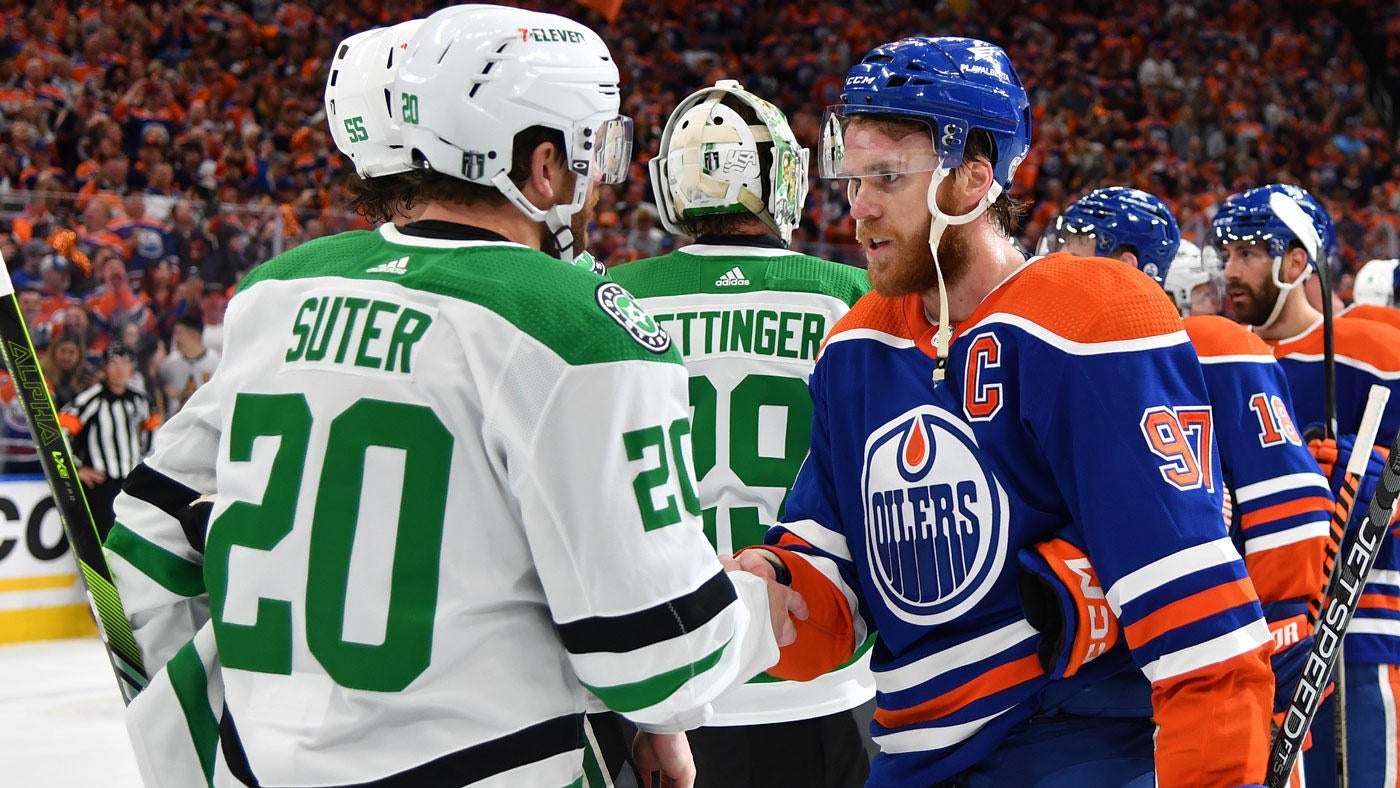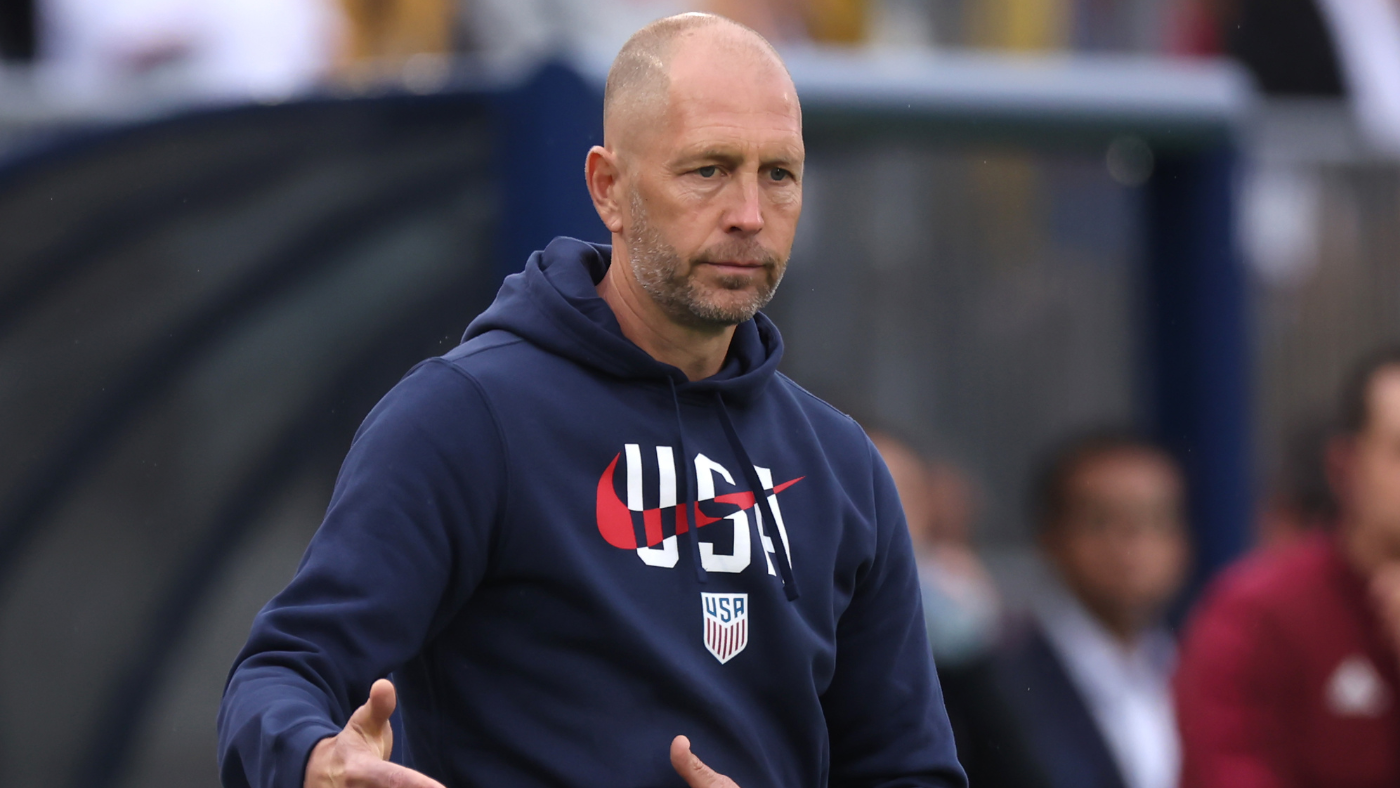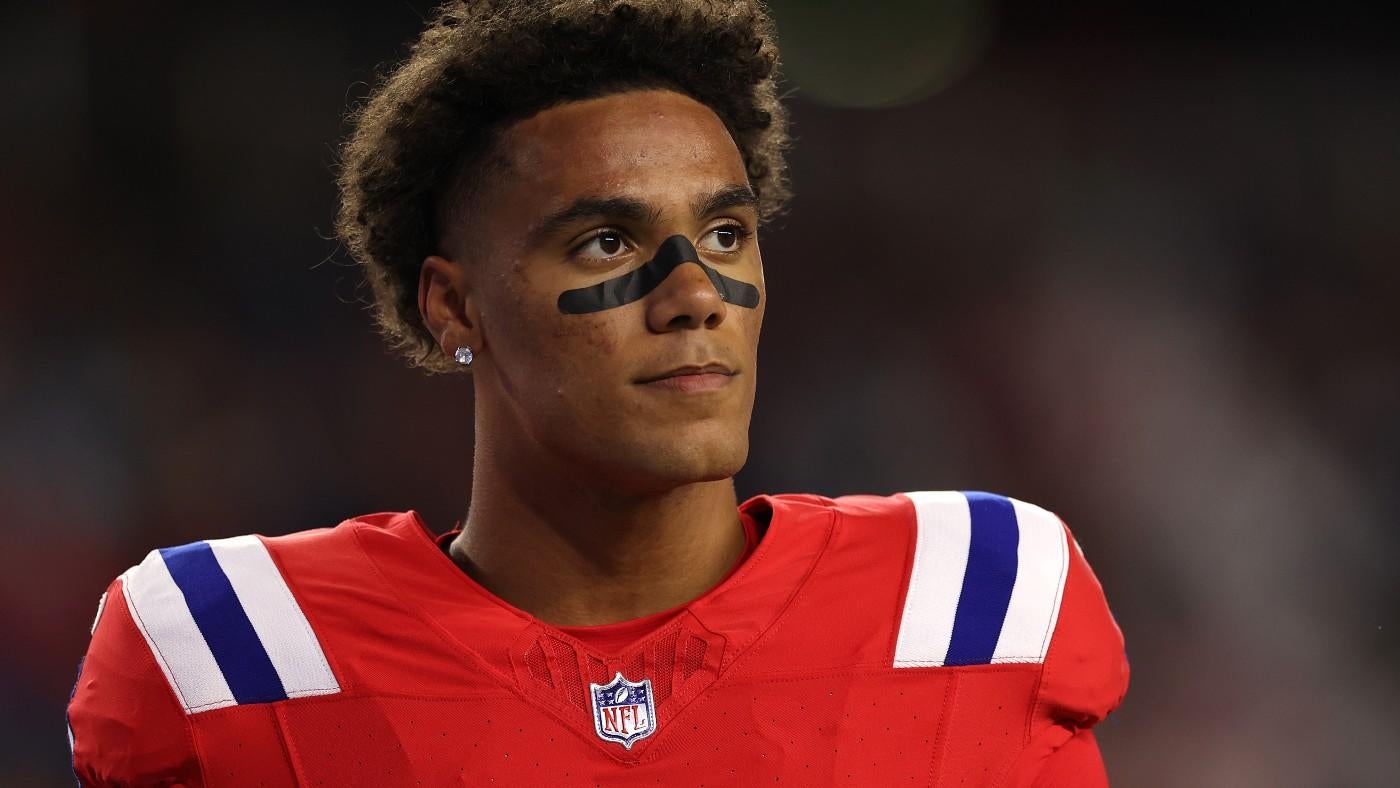Stanley Cup Final 2024: How Edmonton Oilers, Florida Panthers changed identities to escape failures that haunt
Written by CBS SPORTS ALL RIGHTS RESERVED on June 8, 2024

At the risk of sounding like a two-bit inspirational speaker, the roads to many of our great success stories – both in sports and in life – are paved by failure. Sure, it’s cliché, but it’s also true.
It’s certainly true for the two teams we’ll see meet in Game 1 of the Stanley Cup Final on Saturday night.
Immediately after the Edmonton Oilers eliminated the Dallas Stars to clinch Edmonton’s first Western Conference title since 2006, veteran Stars forward Tyler Seguin had this to say about being on the losing end.
“Unfortunately, you got to lose a lot to win in this league. I don’t know why it’s like that. Learn some lessons, keep this taste and get ready for next year.”
Sure, there’s some irony in that quote coming from a guy who won a Stanley Cup as a rookie with the Boston Bruins in 2011, but his message here is pointed more at group arcs than individual ones. To that point, it’s a fairly wise and accurate one.
And while Seguin was talking about his Stars – a team that has been knocking on the door for years at this point – it also applies to the guys on the other side that, this time, came away victorious in six games.
Prior to this year, the Oilers never won a game past the second round of the playoffs in eight seasons of the Connor McDavid era. They reached the Western Conference Final just one time, in 2022, when they were promptly swept in four games by the Colorado Avalanche, who went on to win the Stanley Cup.
Despite consistently being one of the league’s most electrifying offensive teams with the clear-cut best player (McDavid) and another on the shortlist (Leon Draisaitl) over the last several years, the Oilers’ Stanley Cup dreams consistently came apart at the seams – sometimes quickly, sometimes a little more gradually – when Hockey turned into Playoff Hockey.
In most of those cases, you could point to various combinations of a top-heavy lineup, poor team defensive structure and subpar goaltending for the reason they couldn’t get it done. But to zoom out and diagnose it as simply as possible: They weren’t designed to play the right way when the games mattered most.
Disappointment has claimed many fun and exciting teams that have tried to outscore their problems in the playoffs. If there’s not enough commitment to detail in all three zones and a willingness to assume different identities, you’re going home earlier than you want.
Ask the Florida Panthers about that.
Two years ago, they finished as the NHL‘s best team during the regular season, winning their first Presidents’ Trophy in franchise history. They had the league’s best offense, with the only team in the league to average over four goals a game.
Then they were swept by the Tampa Bay Lightning in the second round.
It would have been easy to chalk that exit up to facing a more seasoned Lightning team – they were reigning back-to-back champs at the time, after all. But Bill Zito, who took over as Florida’s general manager just a few years prior, felt that something was inherently wrong with the DNA of his club. They didn’t defend well enough, the details weren’t there and they were too one-dimensional.
That summer, in what felt like a pretty stunning pivot at the time, Zito changed coaches – bumping the green Andrew Brunette for the veteran Paul Maurice – and traded his team’s leading point scorer and the NHL’s reigning assists leader, Jonathan Huberdeau.
There were reasons that trade, which sent Matthew Tkachuk to Florida, made sense for the Panthers. Tkachuk was also an undeniably great player who, like Hubderdeau, had eclipsed 100 points the prior season. (It was only the second time in NHL history that two 100-point scorers from the previous season were dealt for each other.) He was younger and came with more team control after agreeing to a lengthy contact extension as part of the deal.
But Huberdeau played a flashier game, was a fan favorite and a proud, lifelong Panther who endured Florida’s many lean years. Trading him immediately after not only his best season, but also the team’s best season? That’s the kind of move that makes a general manager vulnerable to the ire of his own fanbase.
Still, Zito wasn’t afraid of rocking the boat. In fact, it was kind of the point.
While some debated the value of Huberdeau vs. Tkachuk, no one disputed that they had very different identities. Tkachuk’s game brought much more edge and nastiness on both ends of the ice – something that Zito clearly wanted for his team.
That desire also helped explain a number of other transactions from Zito, including trading for Sam Bennett – widely regarded as one of the league’s meanest (endearing) players – at the trade deadline a year earlier. Also, the signing of Nick Cousins – widely regarded as one of the league’s cheapest (derogatory) players – the same summer he brought in Tkachuk.
It became clear pretty quickly the already-talented Panthers wanted to change their approach both on and off the ice, and the shift was seismic and swift. They went from a fun, fairly quiet bunch to an abrasive group that got off on ruining everyone else’s fun.
Less than a year into Zito’s pivot, Florida walked into the playoffs as a scrappy eight-seed and utilized an infuriatingly relentless forecheck and staunch defensive system to dismantle every team in their path to the Stanley Cup Final, including a Boston Bruins team that finished with the best regular season in league history.
The Panthers ultimately lost to the Golden Knights in the Cup Final but, by then, the proof of concept was already validated. Not only did they have the talent, but they also had a detail-oriented system that demanded players buy in to winning, no matter how pretty or ugly it needed to look.
Ask Kris Knoblauch about that.
The Oilers’ coach took over behind the Edmonton bench this past November after a 3-9-1 start, a horrendous mark for a team that opened the season as a Stanley Cup favorite.
There was talk that previous head coach Jay Woodcroft had to fall on the team sword because of bad goaltending; at the time of his firing, the Oilers’ team save percentage of .864 ranked dead last in the league.
While the goaltending was clearly amplifying the Oilers issues, it was also true that their structure under Woodcroft wasn’t nearly good enough, either. They played fast and loose and often lost their details, which usually led to them getting burned in their own end.
But since Knoblauch’s takeover, there has been a noticeable shift in team mentality. The Oilers are still fun and can bring high-octane offense – it’s almost impossible not to when you have McDavid and Draisaitl – but they also have shown that they can play a responsible, adult brand of hockey. It’s not always a cocaine-fueled circus that requires you to white knuckle the experience.
There’s clearly more of a buy-in to a more details-oriented gameplan under Knoblauch, who has emphasized team defense and more tenacity on the puck in all three zones. It’s made a world of difference.
Despite a fairly modest defensive group on the blue line, Edmonton finished the season as the league’s fifth-best team in terms of goals allowed in their time under Knoblauch. (And yes, they also started getting saves, with a serviceable .904 save percentage in that span.)
During their most successful stretch of the season, the Oilers won 16 straight games and vaulted themselves back into contender status. In 14 of those 16 wins, they allowed two goals or fewer.
Over the course of these playoffs, the Oilers have proved that they can lock in defensively as a unit when they need to – an ability that has eluded them in most of their previous pursuits of the Cup.
They’ve still had their hurdles on the back end. Two of the senior defensemen in that modest blue line group, Darnell Nurse and Cody Ceci, have struggled mightily at times. (Nurse’s 21 goals against at 5-on-5 is the most in the playoffs.) But both have also managed to rebound and make a positive impact after being picked up by the guys around them.
The Oilers have also found a calling card in being penalty killing demons this postseason. After finishing the regular season with a historically good power play, the other side of their special teams has been historically impressive. Heading into the Cup Final, Edmonton has killed 93.9% of power plays against them – including 28 consecutive opportunities and counting.
Not bad for a unit that ranked 30th on the penalty kill before Knoblauch (and PK coach Mark Stuart) arrived in November.
We’ve seen the Oilers win plenty of games over the last handful of years. But under Knoblauch this season and postseason, they’ve proved capable of taking games in a fashion that previous iterations of the Oilers couldn’t fathom.
Look no further than Game 6 of the Western Conference Final. After scoring two power play goals early in the game, Edmonton seemed content to sit back and just hold off the Stars with a bend-don’t-break defensive effort. The final shot total was 35-10 in favor of Dallas, but Edmonton came away with a 2-1 win thanks to strong goaltending and commitment to a defensive structure that limited the quality of those chances.
It seemed unimaginable for the Edmonton Oilers, of all teams, to book a ticket to the Stanley Cup Final in a game that looked like that.
But these aren’t the same Edmonton Oilers that you’ve known for much of the past few years. And they’re not playing the Florida Panthers that we thought we knew before last year.
These are two franchises that have managed to drag themselves out of a dark era within the past decade, but then still had to learn a bit about the flaws that still clung to them. They’re two teams that realized they had to consciously change their identity in order to be capable of getting to where they wanted to go. And those realizations only came through their respective failures.
Now, if they lose, it won’t be because they couldn’t win. It will simply be because they didn’t.
The post Stanley Cup Final 2024: How Edmonton Oilers, Florida Panthers changed identities to escape failures that haunt first appeared on CBS Sports.






